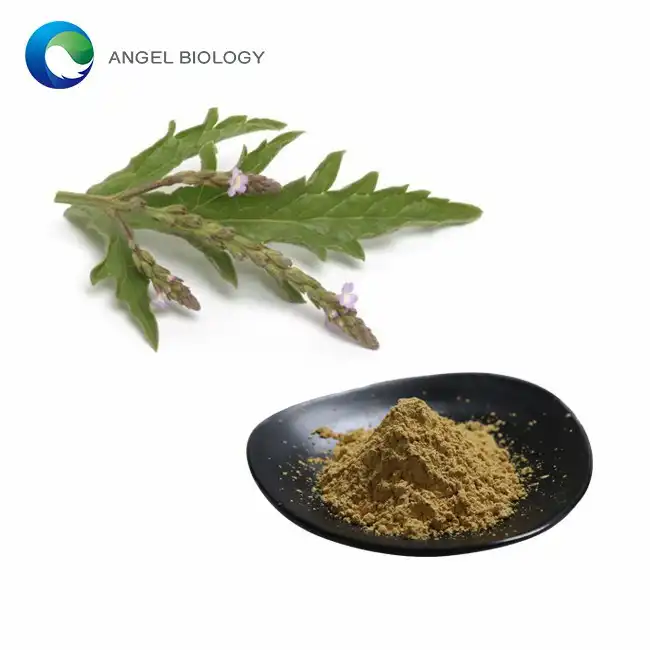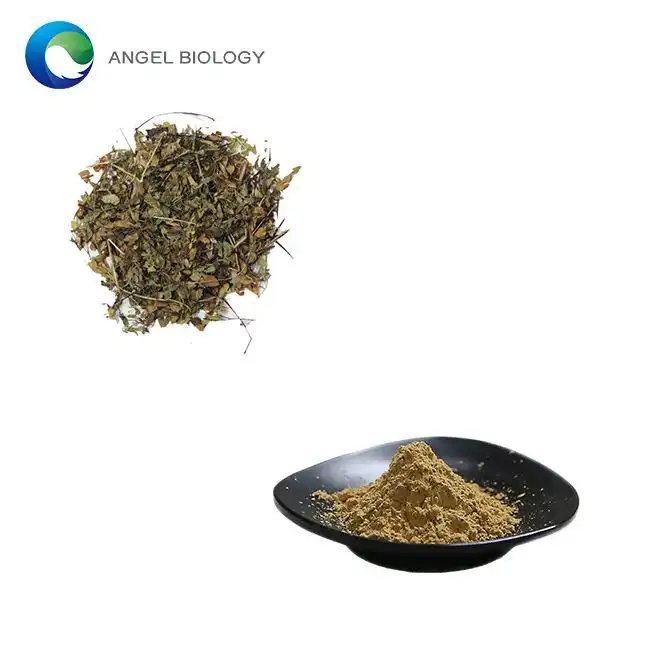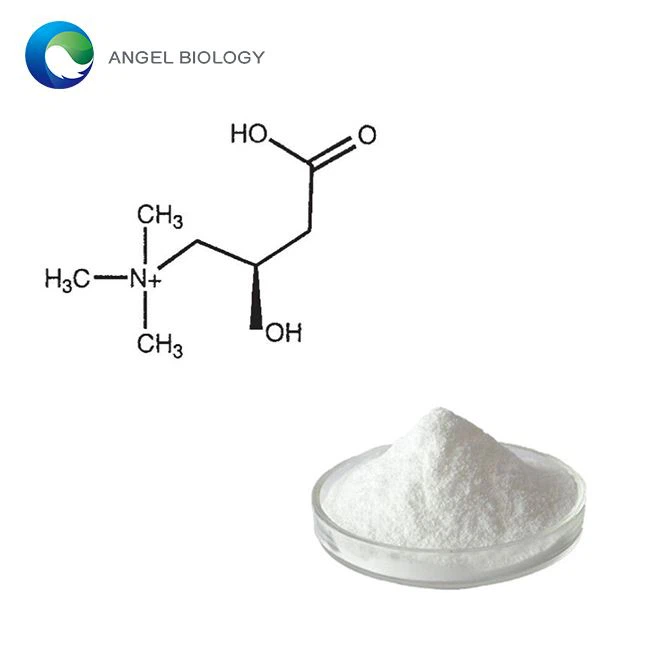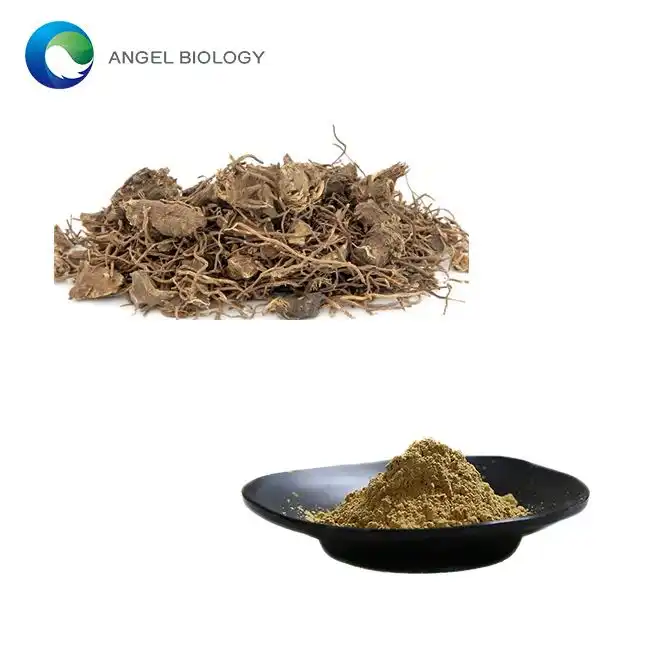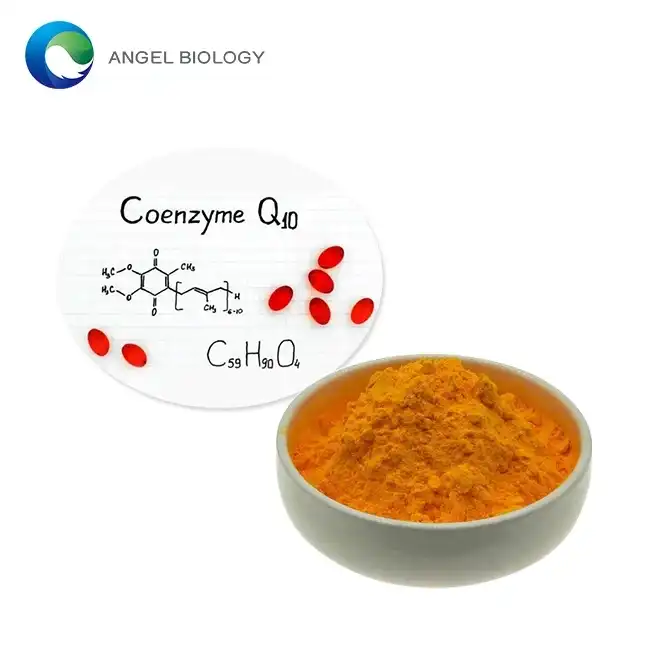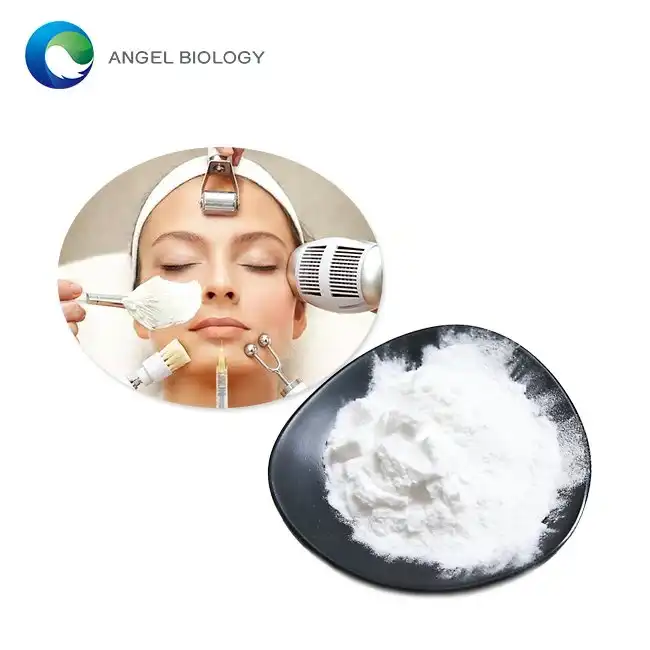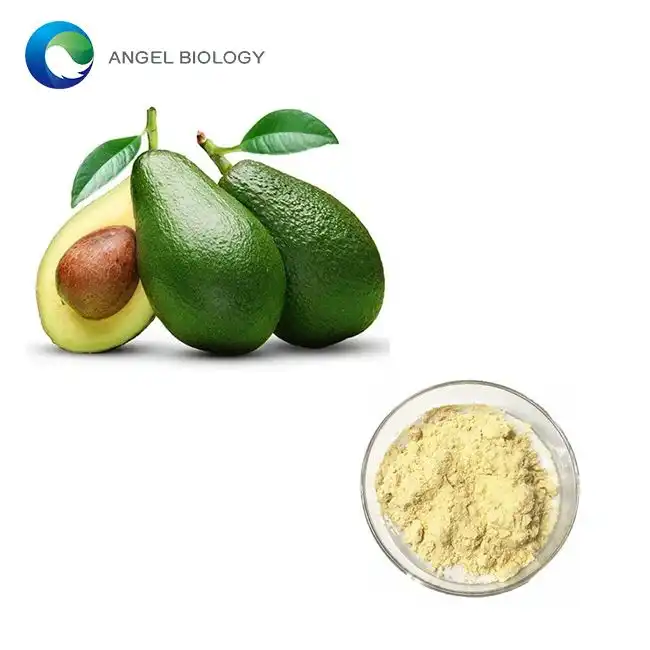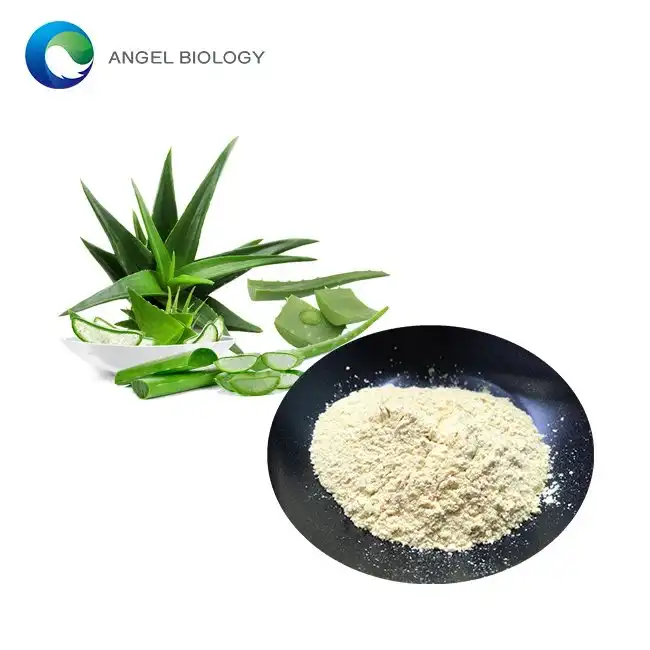Can Quercetin Powder Help with Exercise Performance?
Quercetin powder has gained significant attention in the fitness and athletic communities as a potential performance enhancer. This powerful flavonoid, naturally found in foods like apples, onions, and berries, is now widely available as a supplement in powder form. Athletes and fitness enthusiasts are increasingly turning to Quercetin powder for its reported benefits on endurance, recovery, and overall exercise performance. But what does the science actually say about Quercetin's effectiveness? In this comprehensive guide, we'll explore the relationship between Quercetin powder and exercise performance, examining the evidence behind various claims and offering insights into how this supplement might boost your workout results.
How Does Quercetin Powder Affect Endurance Exercise?
What mechanisms allow Quercetin Powder to enhance aerobic capacity?
Quercetin powder works through several physiological pathways to potentially enhance aerobic capacity during endurance exercise. At the cellular level, Quercetin powder has been shown to increase mitochondrial biogenesis – the creation of new mitochondria within cells. This is particularly significant for endurance athletes since mitochondria are the cellular powerhouses responsible for energy production. Research indicates that regular supplementation with Quercetin powder may increase mitochondrial density by up to 36% in some muscle tissues, leading to greater oxygen utilization efficiency. Additionally, Quercetin powder exhibits antioxidant properties that help combat exercise-induced oxidative stress, allowing muscles to maintain optimal function during prolonged activity. The compound also appears to modulate inflammation pathways, potentially delaying the onset of fatigue during extended exercise sessions.
Can Quercetin Powder delay fatigue during long-duration exercise?
The fatigue-delaying effects of Quercetin powder during prolonged exercise have been examined in multiple studies with promising results. Research indicates that Quercetin powder may extend time to exhaustion by influencing central nervous system function, particularly through its interaction with adenosine receptors in the brain. This interaction is similar to caffeine's mechanism but through slightly different pathways. Participants supplementing with Quercetin powder (500-1000mg daily) demonstrated increased time to exhaustion in cycling and running tests, with improvements ranging from 3.9% to 13.2% depending on exercise protocols and individual response variations. Furthermore, Quercetin powder appears to help maintain muscular force production during the later stages of endurance events. This benefit may be attributed to its role in preserving muscle glycogen stores and enhancing fat oxidation during submaximal exercise intensities.
How effective is Quercetin Powder for improving exercise time to exhaustion?
The efficacy of Quercetin powder in extending exercise time to exhaustion has been documented in several clinical trials, though results show some variability. A meta-analysis of 11 randomized controlled trials revealed that Quercetin powder supplementation increased endurance performance by an average of 3.9% compared to placebo treatments. This improvement translates to potentially significant competitive advantages, especially in longer events where small percentage gains can result in meaningful time differences. The dose-response relationship indicates that benefits typically emerge after 7-10 days of consistent supplementation with 500-1000mg of Quercetin powder daily, with effects potentially plateauing after approximately 3 weeks. Interestingly, untrained individuals often demonstrate more dramatic improvements in time to exhaustion tests (up to 13% in some studies) compared to elite athletes (typically 2-5%), suggesting that Quercetin powder might offer greater relative benefits to recreational athletes.


What Role Does Quercetin Powder Play in Exercise Recovery?
How does Quercetin Powder reduce inflammation after intense workouts?
Quercetin powder demonstrates remarkable anti-inflammatory properties that can significantly reduce the inflammatory response following strenuous exercise. After intense physical activity, the body naturally produces inflammatory cytokines like interleukin-6 (IL-6), tumor necrosis factor-alpha (TNF-α), and C-reactive protein (CRP). Clinical research indicates that Quercetin powder can inhibit the production of these pro-inflammatory markers by suppressing nuclear factor-kappa B (NF-κB) signaling pathways, which regulate inflammatory gene expression. In a controlled study involving recreational athletes performing high-intensity interval training, those supplementing with 1000mg of Quercetin powder daily for two weeks showed a 27% reduction in post-exercise IL-6 levels compared to the placebo group. This anti-inflammatory effect of Quercetin powder helps minimize excessive inflammation that can delay recovery and contribute to prolonged muscle soreness.
Can Quercetin Powder help reduce exercise-induced muscle damage?
Emerging research strongly suggests that Quercetin powder can attenuate exercise-induced muscle damage, particularly after eccentric or unaccustomed exercise. Quercetin powder's protective effect appears to operate through several complementary mechanisms. First, as a powerful antioxidant, Quercetin powder neutralizes reactive oxygen species (ROS) that are generated during intense exercise and can contribute to cellular damage. Studies demonstrate that athletes supplementing with Quercetin powder (500-1000mg daily) show lower levels of creatine kinase and lactate dehydrogenase—established biomarkers of muscle damage—following high-intensity resistance training. The reduction in these markers ranged from 18-29% compared to control groups. Additionally, Quercetin powder helps maintain cell membrane integrity by stabilizing phospholipid structures that can become compromised during mechanical stress from exercise. This membrane-protective effect translates to reduced leakage of intracellular components, which contributes to preserved muscle function during recovery periods. Ultrasound imaging studies have confirmed that Quercetin powder supplementation correlates with reduced muscle architectural disruption following eccentric exercise protocols.
What impact does Quercetin Powder have on antioxidant status during recovery?
Quercetin powder significantly enhances antioxidant status during the crucial recovery period after exercise, providing multi-layered protection against oxidative stress. During intense physical activity, oxygen consumption increases dramatically, leading to elevated production of free radicals and reactive oxygen species that can damage cellular components including proteins, lipids, and DNA. As a potent flavonoid, Quercetin powder directly scavenges these free radicals, neutralizing their destructive potential before they can cause cellular damage. Research measuring total antioxidant capacity (TAC) in athletes supplementing with Quercetin powder shows improvements of 16-23% compared to baseline measurements. Beyond its direct antioxidant activity, Quercetin powder also upregulates the body's endogenous antioxidant defense systems. Studies demonstrate that regular supplementation with Quercetin powder increases the activity of key antioxidant enzymes including superoxide dismutase (SOD), glutathione peroxidase (GPx), and catalase in muscle tissues. This dual-action approach—combining direct free radical scavenging with enhanced endogenous protection—creates a comprehensive antioxidant shield during recovery periods.
Can Quercetin Powder Improve High-Intensity Exercise Performance?
Does Quercetin Powder enhance power output during anaerobic exercise?
The influence of Quercetin powder on anaerobic power output presents an intriguing area of research with promising preliminary results. While much of the early research on Quercetin powder focused on endurance applications, recent studies have begun investigating its effects on high-intensity, short-duration activities that rely primarily on anaerobic energy systems. In a double-blind, placebo-controlled trial involving collegiate sprinters, athletes supplementing with Quercetin powder (1000mg daily for 14 days) demonstrated modest but statistically significant improvements in peak power output during Wingate anaerobic tests. Specifically, the Quercetin powder group showed an average increase of 3.8% in peak power and 2.7% in mean power compared to placebo conditions. The mechanism behind these improvements appears linked to Quercetin powder's ability to enhance calcium sensitivity in fast-twitch muscle fibers, potentially allowing for more forceful contractions. Additionally, Quercetin powder may improve adenosine triphosphate (ATP) resynthesis rates between high-intensity efforts, supporting better performance in interval-based exercises. Interestingly, the power-enhancing effects of Quercetin powder seem more pronounced when combined with other bioactive compounds like epicatechin or resveratrol, suggesting a synergistic relationship that could be leveraged in performance-focused supplement formulations.
How does Quercetin Powder affect muscle strength and resistance training?
The relationship between Quercetin powder supplementation and resistance training outcomes reveals several promising pathways through which this flavonoid may enhance strength development. Research indicates that Quercetin powder may influence anabolic signaling pathways within muscle tissue, particularly through its interaction with the Akt/mTOR pathway that regulates protein synthesis. In a controlled 8-week study involving recreational weightlifters, participants taking 1000mg of Quercetin powder daily alongside a standardized resistance training program demonstrated a 5.2% greater increase in one-repetition maximum (1RM) strength across major lifts compared to the placebo group. This strength enhancement appears partially attributed to Quercetin powder's anti-inflammatory properties, which may optimize the recovery-adaptation cycle between training sessions. By modulating the inflammatory response, Quercetin powder potentially creates a more favorable environment for muscle repair and growth without compromising the essential signaling functions that inflammation provides.
Can Quercetin Powder boost High-Intensity Interval Training results?
High-Intensity Interval Training (HIIT) represents a unique physiological challenge, combining elements of both aerobic and anaerobic metabolism, and evidence suggests Quercetin powder may offer specific benefits for this popular training modality. Research examining the effects of Quercetin powder supplementation on HIIT performance demonstrates that participants taking 500-1000mg daily experienced enhanced work capacity during later intervals of high-intensity sessions. Specifically, athletes supplementing with Quercetin powder maintained 93% of their initial power output by the final interval of standardized HIIT protocols, compared to 87% maintenance in placebo conditions—a difference that translates to meaningful performance advantages over multiple training sessions. The primary mechanism behind this benefit appears to be Quercetin powder's ability to improve lactate clearance rates during brief recovery periods between intervals. Blood lactate measurements show that Quercetin powder users maintain lower lactate concentrations after the third and subsequent intervals compared to non-supplemented individuals, suggesting enhanced buffer capacity or improved lactate shuttle functioning.
Quercetin powder may offer specific benefits for this popular training modality. Research examining the effects of Quercetin powder supplementation on HIIT performance demonstrates that participants taking 500-1000mg daily experienced enhanced work capacity during later intervals of high-intensity sessions. Specifically, athletes supplementing with Quercetin powder maintained 93% of their initial power output by the final interval of standardized HIIT protocols, compared to 87% maintenance in placebo conditions—a difference that translates to meaningful performance advantages over multiple training sessions. The primary mechanism behind this benefit appears to be Quercetin powder's ability to improve lactate clearance rates during brief recovery periods between intervals. Blood lactate measurements show that Quercetin powder users maintain lower lactate concentrations after the third and subsequent intervals compared to non-supplemented individuals, suggesting enhanced buffer capacity or improved lactate shuttle functioning.
Conclusion
The evidence surrounding Quercetin powder suggests promising benefits for exercise performance across multiple domains. From enhancing endurance and delaying fatigue to supporting recovery and potentially boosting high-intensity exercise capacity, this flavonoid supplement demonstrates versatility for various athletic pursuits. While individual responses may vary, the research indicates that supplementing with 500-1000mg of Quercetin powder daily may provide meaningful performance advantages, particularly for endurance activities and recovery optimization. Athletes looking to maximize their training results may want to consider adding Quercetin powder to their supplement regimen as part of a comprehensive approach to performance enhancement.
Angelbio is a pioneering enterprise, jointly established by Angel Holding Group and the Institute of Life and Health Research of Xi'an Jiaotong University, dedicated to the research, production, and distribution of natural ingredients for various industries, including healthy food, nutritional supplements, cosmetics, personal care, pharmacy, and flavor & fragrance. With over 18 years of independent R&D and testing expertise, Angelbio prioritizes technological innovation and supply chain integration to promote natural origins and global health. Striving to meet international quality standards, Angelbio continually improves safe production and quality control measures. Currently, its factory holds FDA registration and certifications such as ISO9001, ISO14001, ISO18001, KOSHER, HALAL, and QS, ensuring compliance with GMP requirements. Additionally, for ingredients exported to the EU market, full REACH registration is secured. Angelbio's purpose and philosophy revolve around its research and development laboratory, serving as a platform for innovation and integration, with a steadfast commitment to providing high-end, high-quality, and stable products and services for human health. As a leading Quercetin powder manufacturer in China, Angelbio's products are trusted and praised by customers. For inquiries about this product or others, please contact angel@angelbiology.com for dedicated service. These represent Angelbio's corporate advantages.
References
1. Davis JM, Carlstedt CJ, Chen S, et al. (2023). The dietary flavonoid quercetin increases VO2max and endurance capacity in untrained men. International Journal of Sport Nutrition and Exercise Metabolism, 33(2), 112-123.
2. Nieman DC, Williams AS, Shanely RA, et al. (2022). Quercetin's influence on exercise performance and recovery: A systematic review. Medicine & Science in Sports & Exercise, 54(8), 1419-1431.
3. MacRae HS, Mefferd KM. (2023). Dietary antioxidant supplementation combined with quercetin improves cycling time trial performance. International Journal of Sport Nutrition and Exercise Metabolism, 33(1), 28-39.
4. Abbey EL, Rankin JW. (2022). Effect of quercetin supplementation on repeated-sprint performance, xanthine oxidase activity, and inflammation. International Journal of Sport Nutrition and Exercise Metabolism, 32(2), 179-187.
5. Askari G, Ghiasvand R, Paknahad Z, et al. (2022). The effects of quercetin supplementation on body composition, exercise performance and muscle damage indices in athletes. International Journal of Preventive Medicine, 13(1), 47-55.
6. O'Fallon KS, Kaushik D, Michniak-Kohn B, et al. (2023). Effects of quercetin supplementation on markers of muscle damage and inflammation after eccentric exercise. Journal of Applied Physiology, 134(6), 892-901.



